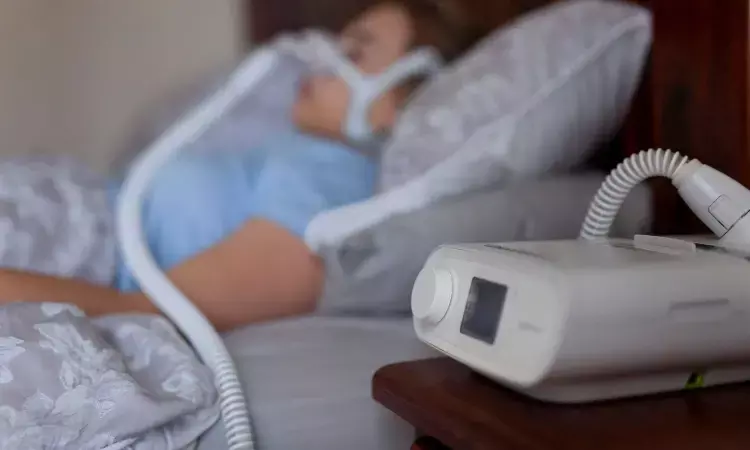- Home
- Medical news & Guidelines
- Anesthesiology
- Cardiology and CTVS
- Critical Care
- Dentistry
- Dermatology
- Diabetes and Endocrinology
- ENT
- Gastroenterology
- Medicine
- Nephrology
- Neurology
- Obstretics-Gynaecology
- Oncology
- Ophthalmology
- Orthopaedics
- Pediatrics-Neonatology
- Psychiatry
- Pulmonology
- Radiology
- Surgery
- Urology
- Laboratory Medicine
- Diet
- Nursing
- Paramedical
- Physiotherapy
- Health news
- Fact Check
- Bone Health Fact Check
- Brain Health Fact Check
- Cancer Related Fact Check
- Child Care Fact Check
- Dental and oral health fact check
- Diabetes and metabolic health fact check
- Diet and Nutrition Fact Check
- Eye and ENT Care Fact Check
- Fitness fact check
- Gut health fact check
- Heart health fact check
- Kidney health fact check
- Medical education fact check
- Men's health fact check
- Respiratory fact check
- Skin and hair care fact check
- Vaccine and Immunization fact check
- Women's health fact check
- AYUSH
- State News
- Andaman and Nicobar Islands
- Andhra Pradesh
- Arunachal Pradesh
- Assam
- Bihar
- Chandigarh
- Chattisgarh
- Dadra and Nagar Haveli
- Daman and Diu
- Delhi
- Goa
- Gujarat
- Haryana
- Himachal Pradesh
- Jammu & Kashmir
- Jharkhand
- Karnataka
- Kerala
- Ladakh
- Lakshadweep
- Madhya Pradesh
- Maharashtra
- Manipur
- Meghalaya
- Mizoram
- Nagaland
- Odisha
- Puducherry
- Punjab
- Rajasthan
- Sikkim
- Tamil Nadu
- Telangana
- Tripura
- Uttar Pradesh
- Uttrakhand
- West Bengal
- Medical Education
- Industry
Sleep apnea patients with morning chronotype may derive more CPAP benefits

USA: OSA (obstructive sleep apnea) patients with a morning chronotype have a clinically meaningful increase in CPAP (continuous positive airway pressure) adherence compared with other chronotypes, as shown by a secondary analysis of the randomized APPLES trial.
The findings, published in Annals of the American Thoracic Society, imply that chronotype may be a novel predictor of CPAP adherence, although mechanisms of this association need further study. The Morningness-Eveningness Questionnaire (MEQ) defines the chronotype, which measures when a person's circadian rhythm produces peak alertness.
Melissa P Knauert, Yale School of Medicine, Internal Medicine, New Haven, Connecticut, United States, and colleagues reported that patients with the morning chronotype (early birds) used their CPAP machines for 32 more minutes per night than their intermediate chronotype counterparts over six months of use.
Considering that poor adherence limits the effectiveness of CPAP therapy for obstructive sleep apnea, a better understanding of CPAP adherence would be required to develop novel strategies to improve it. Therefore Dr Knauert and the team aimed to determine if the chronotype (morning, evening or intermediate) of OSA patients is associated with differences in CPAP adherence. They also decided if such as association exists to determine the mechanism underlying this association.
For this purpose, the researchers performed a secondary analysis of the APPLES (Apnea Positive Pressure Long-term Efficacy Study) clinical trial. Chronotype was assessed using the MEQ in participants randomized to the CPAP arm with daily adherence data (n=469). The exposures were morning type (MEQ ≥ 59), intermediate (41 < MEQ < 59) and Evening (MEQ ≤ 41) categories. Over six months, the authors modelled daily CPAP use (hours per night) after adjusting for sex, age, and marital status. Mediation analyses as performed using weekend catch-up sleep, sleep duration, depression, and other factors to assess the mechanisms of this association.
The authors reported the following findings:
- Most participants were obese men with severe OSA (body mass index of 32.3 ± 7.3 kg/m2, 65% male and AHI 39.8 ± 24.6 per hour, respectively).
- Participants were 44% morning, 47% intermediate and 8% evening chronotype.
- Participants with the morning chronotype reported the shortest sleep duration on weekends (7.3 versus 7.6 and 7.9 hours per night) compared to the intermediate and evening types.
- Participants with morning chronotype exhibited a 40-minutes per night higher CPAP use than persons with intermediate chronotype. This relationship was mildly attenuated (32.8 minutes per night) after adjustment for covariates.
- None of the selected factors (e.g., sleep duration, weekend catch-up sleep) exhibited a significant mediation effect.
"Morning chronotype is linked with a clinically meaningful increase in CPAP adherence than other chronotypes," the authors wrote. "Mechanisms of this association require further research. Chronotype may be a novel predictor of CPAP adherence."
Reference:
The study, "Morning Chronotype Is Associated with Improved Adherence to Continuous Positive Airway Pressure among Individuals with Obstructive Sleep Apnea", was published in the Annals of the American Thoracic Society. DOI: https://doi.org/10.1513/AnnalsATS.202210-885OC
Dr Kamal Kant Kohli-MBBS, DTCD- a chest specialist with more than 30 years of practice and a flair for writing clinical articles, Dr Kamal Kant Kohli joined Medical Dialogues as a Chief Editor of Medical News. Besides writing articles, as an editor, he proofreads and verifies all the medical content published on Medical Dialogues including those coming from journals, studies,medical conferences,guidelines etc. Email: drkohli@medicaldialogues.in. Contact no. 011-43720751


